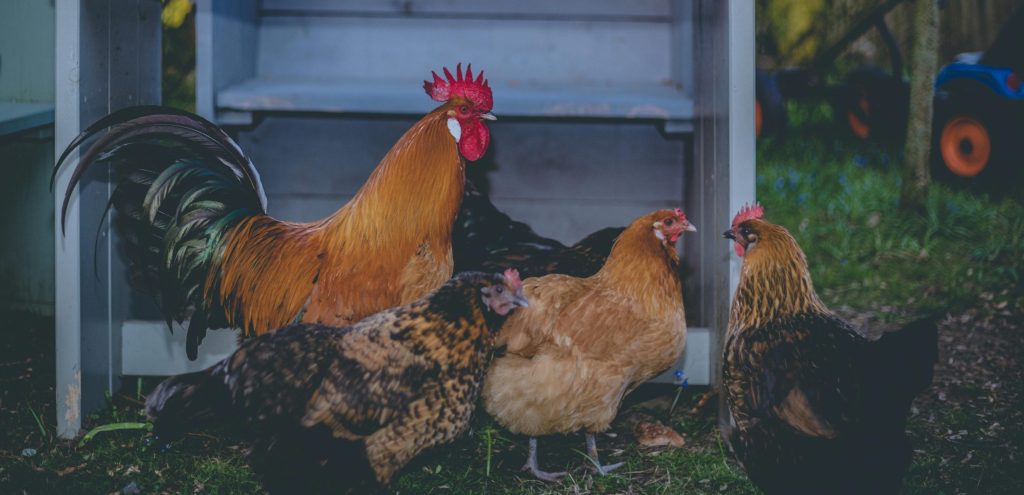
Raising chickens is a fun and rewarding hobby that brings fresh eggs, garden helpers, and a lot of personality right into your backyard. Whether you’re a family looking for a new project, a 4-H or FFA member starting with poultry, or just someone interested in a more sustainable lifestyle, keeping chickens is a great place to begin.
But if you’re new to poultry, it can feel a little overwhelming. Don’t worry—here are some beginner-friendly tips to help you start strong and enjoy the journey.
1. Choose the Right Chicken Breeds
Not all chickens are alike! Some lay lots of eggs, some are more docile and friendly, and others are more ornamental than productive. If you’re just starting out, look for beginner-friendly breeds like:
- Rhode Island Red – Hardy, dependable egg layers
- Barred Rock (Plymouth Rock) – Friendly and consistent
- Buff Orpington – Gentle giants, great for families
- Easter Egger – Fun-colored eggs and good personalities
These breeds are typically hardy, easy to manage, and well-suited for a backyard flock.
2. Start Small
It’s tempting to get a big flock right away, but starting small is a smart choice. Begin with 3–6 chickens so you can learn the ropes without being overwhelmed. Chickens are social animals, so always keep at least two or three together—never just one.
3. Build or Buy the Right Coop
Your chickens need a safe, clean, and dry space to sleep, lay eggs, and stay protected from predators. When choosing or building a chicken coop:
- Allow 2–4 square feet per chicken inside the coop
- Provide 8–10 square feet per chicken in the outdoor run
- Include nesting boxes (1 box per 3–4 hens is enough)
- Use roosting bars for nighttime perching
- Make sure it’s well-ventilated but draft-free
Don’t forget to predator-proof it—raccoons, hawks, and even neighborhood dogs can be a threat.
4. Use the Right Bedding
For beginners, pine shavings are a great choice for coop bedding. They’re absorbent, affordable, and easy to clean. Avoid cedar shavings, which can be harmful to chickens’ respiratory systems.
You can also explore deep litter methods once you’re more comfortable, which involves composting bedding inside the coop.
5. Feed a Balanced Diet
Chickens need the right nutrition to stay healthy and productive. For new keepers:
- Start with a chick starter feed if you have baby chicks
- Switch to a layer feed once your hens are about 18 weeks old or start laying eggs
- Offer clean, fresh water daily
- Add crushed oyster shells for calcium and grit for digestion if they’re not on free range
Treats are okay in moderation—think fruits, veggies, mealworms—but 90% of their diet should come from proper feed.
6. Practice Good Coop Hygiene
Clean the coop regularly to prevent odors, flies, and disease. Here’s a quick checklist:
- Spot-clean droppings from bedding weekly
- Scrub waterers and feeders at least once a week
- Fully change bedding monthly or as needed
- Check for mites, lice, and any signs of illness
Good hygiene keeps both chickens and their eggs safer.
7. Understand Egg Laying Patterns
Don’t worry if your hens don’t lay eggs right away! They usually start around 5–6 months old, depending on the breed. Once they start, you can expect 3–6 eggs per week per hen, although this varies with age, season, and health.
In winter, laying often slows down due to shorter days. That’s normal!
8. Handle Your Chickens Often
The more time you spend with your chickens, the friendlier and more manageable they’ll be. Try hand-feeding treats, talking to them gently, and picking them up calmly. Chickens can become great little pets, especially for kids.
9. Be Prepared for Common Challenges
Every chicken keeper runs into bumps in the road. Some examples:
- Molting (when chickens lose feathers and stop laying)—totally normal
- Broodiness (hen wants to hatch eggs)—handle with patience or break the behavior
- Predators or escapes—keep your fencing and coop secure
- Health issues—observe your birds daily and learn signs of illness (like unusual droppings or behavior)
Ask other chicken keepers for advice—there are many helpful online groups and local 4-H leaders.
10. Enjoy the Experience!
Chickens are more than just egg machines—they’re curious, funny, and full of personality. You’ll learn something new every week and get a real sense of satisfaction from taking care of your own little flock.
Whether you’re gathering eggs in the morning or watching your hens scratch and peck in the sunshine, chicken keeping can quickly become a favorite part of your day.
Final Thoughts
Starting with chickens is easier than you think—especially with the right foundation. Keep it simple, do your research, and don’t be afraid to ask for help. Before long, you’ll be an experienced chicken keeper, helping others take the leap just like you did.
If you’re ready to get started, check out our chicken coop guides, breed reviews, and beginner supply checklists to get everything you need for success.
Happy chicken keeping!